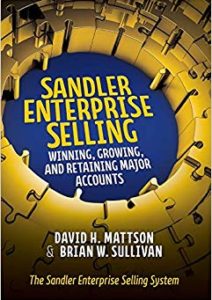We’re all familiar with The Buddha. Born somewhere in the vicinity of 500 BC, he developed a following that today boasts 10% of the world’s population. And while his teachings provided countless gems of true wisdom for us all, there’s one quote that has always captivated me. “The mind is everything. What you think, you become. What you feel, you attract. What you imagine, you create”. Let that sink in for a moment before we examine how valuable its understanding is in the field of selling.
But first, consider the placebo effect. Placebos, as we know from healthcare, are used by pharmaceutical firms in clinical trials to help determine the effectiveness of drug treatments. In a study done a few years back, one group of chronic headache sufferers was given an actual drug while a similar group received only a sugar tablet, with neither group being aware that there were two different types of “medications”. While results were higher with the group receiving the actual drug, more than 50% of those receiving the placebo reported relief. Again, not being aware of the two types of “medications”, the placebo group believed strongly that relief would come. And for half of them, it did. Considering The Buddha’s wisdom of the power of the mind delivering positive results, there’s also a sinister side to the picture.
In 1966, The national birth rate in Japan experienced a huge 25% drop from 1965 but rebounded to normal levels the following year in 1967. What could have caused such a large statistical swing? What if I told you that the 1966 plunge was fully expected as was the 1967 return to normal? It’s hard to imagine that would be the case but consider that 1966 was the Year of the Fire Horse, the 43rd combination of the Chinese Zodiac cycle, occurring once every 60 years. And culturally speaking, the Japanese culture is strongly superstitious. As such, many Japanese believe that female babies born in the year of the Fire Horse are destined for a life of cruel fate and misfortune. So, in 1966, superstitious parents avoided having babies, concerned that daughters born in that year would be extremely disadvantaged. And historically, statistics showed that Japanese babies who were born in the Year of the Fire Horse actually died up to five years earlier than those born in other years. How’s that for compelling data driving the manifestation of negative beliefs and their very real effect on people! This darker side of believing is referred to as the nocebo effect. In it, the power of negative expectations, as with the positives of placebos and positivity, produces actual negative results.
A fascinating story but what does it have to do with selling? “The mind is everything”. To paraphrase The Buddha, “What you think, feel and imagine dictates your ability to win, grow and keep clients”.
Take a moment and think of something positive that enables you to be effective in selling. Think of your positive beliefs about why it affects you in such a productive way. Good, warm feelings embrace you as you ponder. Now, think of something that handcuffs you in selling and ask yourself what your negative beliefs are about it and how it limits your effectiveness. The resulting feelings likely don’t embrace you at all. Strangle is likely the more appropriate term.
So, just as with placebos and nocebos, the resulting positive and negative beliefs are powerful thoughts that dictate attitudes and behaviors. And, of course, they also dictate results, just like the Fire Horse.
Practically speaking, what can you then do to increase the chances that your selling beliefs are positive? One very powerful strategy is to build your confidence. The following nine pragmatic ways can help you build confidence and courage to be assured in your beliefs:
- Be comfortable saying “no”. A great way to do so is with the introductory words “Unfortunately, no and let me explain why….”.
- Build and utilize streamlined Go/No-Go frameworks to maximize the likelihood that the deals you pursue are the deals they’re most likely to win.
- Prior to any interaction, plan religiously. If a transaction is worth doing, it’s worth planning for.
- Ask lots of questions – good, insightful questions.
- Listen intently. Knowledge breeds confidence but you must seek it to gain it.
- Be mindful. Preconceived notions and biases are yokes around your neck. Live in the moment of every interaction to build agility in terms of what happens next.
- Be accountable. Own your failures and learn from them.
- Use post-mortems to gain lessons learned from losses to insure increased effectiveness on future deals. You win or you learn.
- Be sure to care. Its presence is obvious as is its absence.
Of course, there are more but focusing on these will be a good start. And remember that today, with the prevalence of team selling, your individual beliefs can also be highly contagious in your groups. Positivity breeds positivity.
The Buddha gave us a gift so many years ago. Beliefs are incredibly powerful and working hard to make and keep yours positive can be a game-breaker for your success. And if your positive beliefs can have such a beneficial impact on you and your team, imagine how your clients will feel.






Comments